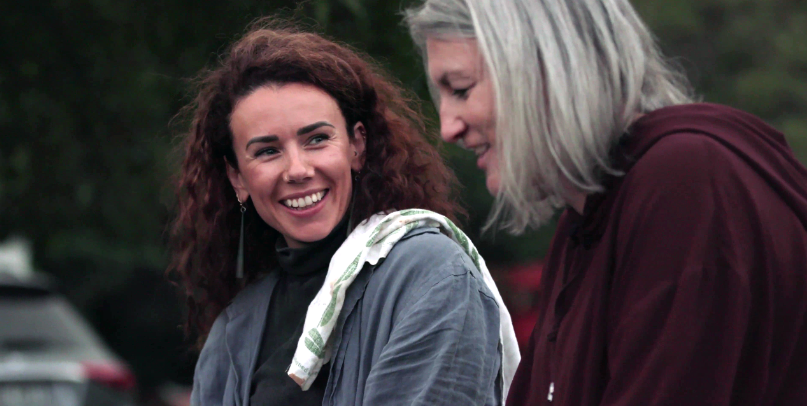Inside ANZ
Antonia Watson: feeling like a fish out of water
“When I became ANZ New Zealand’s Chief Financial Officer, the most common reaction I had wasn’t congratulations, it was 'wow, it’s so inspiring that someone like you got that job'. If I ever needed proof that stereotypes in banking can exist, that was it.”

I may be the chief executive of a bank but I’ve never lent a dollar in my life.
So imposter syndrome can creep in - if I let it.
Doubting one’s abilities or feeling like a fraud is a well-recognised and researched phenomenon and, while it is widespread, until recently it was rarely discussed.
It can impact confidence, hinder career progression and ultimately detract from our ability to create diverse and inclusive workplaces.
Last year we commissioned ANZ’s Watch Women Win report which examined the obstacles preventing women’s success. The report revealed a lack of confidence, fear of failure or feeling judged are the main factors holding women back.
However, the report also examined the motivations for success – and a key finding was women are inspired by seeing other woman celebrated for doing well. So, I’ve decided to travel around New Zealand this year meeting successful women, to hear and share their stories.
My latest trip took me to Tora - a tiny settlement on the remote Wairarapa coast - to meet the co-founder and co-owner of the Tora Collective, Claire Edwards. I admire her tremendously.
The kaupapa (values, principles and plans) behind her company is impressive – they sustainably catch kaimoana (seafood) to order by free diving, providing top-quality product exclusively for the people of Aotearoa while also aiming to protect the environment and preserve shellfish stocks.
Claire has grown a successful business in a very ethical and sustainable manner and she’s done this within the typically male-dominated fishing and seafood industry. I was interested to find out what her experience has been, working in an industry that wasn’t designed for her.
Not long after we met, she told me how proud she is of what she’s doing - but that she also feels a strong sense of needing to prove herself in order to be accepted by the wider industry.
I can relate - I’ve felt that way too. Banking, like the fishing and seafood industry, was until recently dominated by men - I know because I was often the only woman in the room.
Where do we belong?
While travelling around the country meeting amazing women like Claire, I’ve been struck by how common it is to find them grappling with feelings of not belonging and how those feelings impact the way we, as women, show up.
When you feel like you don’t belong, it’s natural to want to hide or change yourself - to fit in. A sense of belonging nurtures confidence and a lack of that feeling fosters self-doubt.
Everyone has different ways of coping with that pressure. My way was to project a far more assertive version of myself than I was actually feeling – “fake it till you make it”.
For others, finding their voice can be much harder. The combined pressures of showing up, using your voice, keeping the right tone in a group you don’t feel a part of - and doing it by yourself - can be intense.
I’ve seen women paralysed with fear, unable to handle the challenge that comes with having their ideas scrutinised.
Far too often, we consider feelings of fraud, or a fear of failure, as personal weaknesses – but they are not. We need to reframe our thinking and be kind and supportive to one another while we’re doing it – like the generation coming through, who can teach us plenty about the value of inclusivity.
Imagine if we celebrated effort in the same way we now celebrate achievement? Would the people we consider to be at the top of their chosen fields still be the most admired?

Claire Edwards, co-founder and co-owner of the Tora Collective
I’m not just talking about work, either - Claire confided in me she sometimes feels imposter syndrome culturally too.
Having lost connection from her iwi (community), Ngāi Tahu, she feels intimidated by her lack of knowledge and fears judgement.
Claire is now at the start of a long and very rewarding journey home and I’m moved by her courage. I hope she finds supportive mentors who have the power to turn what could be a difficult experience into a kind one.
If the future is Claire, I’m hopeful and inspired. She is driven by her values and a strong sense of purpose - and I can see that clearly in how she shows up and in what she has achieved.
The thing I value most about my job is my ability to influence meaningful and lasting change. That means creating a place where people feel like they belong, where we nurture confidence. No one should feel like a fraud.
We’re doing this at ANZ by implementing our Te Ao Māori strategy, making sure our recruitment process looks beyond a person’s previous jobs and includes gender balanced interview panels with at least one woman on the shortlist. We are reinforcing our gender targets and supporting our LGBTIQ+ community.
I urge more of the business community to pitch in too - we need more women like Claire starting, growing and running successful businesses. Sitting on Boards and in executive positions.
I hope you are as inspired by her story as I have been.
This article was first published in the New Zealand Herald
Antonia Watson is ANZ New Zealand CEO
Related Articles:
Community & Purpose
Banking beyond the binary
Communities
